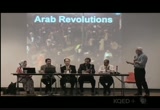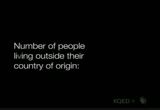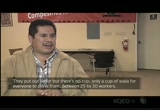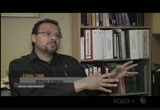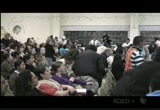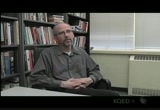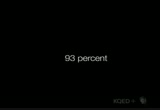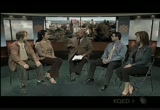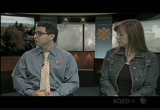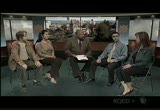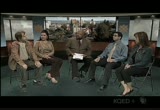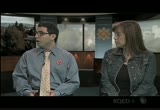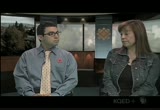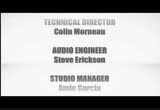tv Equal Time PBS July 30, 2011 2:30pm-3:00pm PDT
2:30 pm
% building a great society takes a great labor force. the rights of the worker, and the reality of what it takes to create a world class city, straight ahead on "equal time." >> from san jose state university and kteh, you're watching "equal time," giving "equal time" to competing points of view. >> i'm your host, juneively
2:31 pm
professor bob -- journalism professor bob rucker. manual labor has always been tough, but necessary to build buildings and monuments. >> the arab emirates was beautiful beaches, home to the world's most beautiful hotels, fastest coasters, and the tallest buildings in the world. they were built by the hands of immigrants. they come from india, pakistan, and the philippines, seeking better opportunities than they can find in their own countries. according to the human rights watch, many were are exploited without compensation, unfavorable working conditions, leading to death or illnesses, and horrible working conditions. these men live in these
2:32 pm
apartments. yet they still stay in the uae, hoping to better themselves and help their families. this 25-year-old has been working as a delivery man for seven years. >> he said he came here to work and earn money for his family, to get some money to help their family for their full and daily needs. that's the reason he came from pakistan. >> said he earns 2500duram and sends 1500 back to his family in pakistan. that's $400 a month. his living conditions are questionable. >> four people live here. so a total of 15 people for two bathrooms. >> for many workers here, the money is worth it, even if it is only $200 a month for minimum wage construction jobs, they send most of their
2:33 pm
earnings back home to their family. migrant workers suffered unpaid wages, food deprivation, long working hires, and sexual abuse of women according to a study. >> it's the greed of the contractor and the company. they're the ones that decided that. we didn't know about it as a government until we were told ask we quickly rectified the situation, but the government never said do whatever you want. greed. >>. we're looking for a system that is more humane. >> he said they have been treated better in the uae than america. >> they have a bed, they have transportation to and from their work. they have clothing, food, everything, hats. they have healthcare.
2:34 pm
they are covered. so that's positive. i'll tell you a true story, a labor camp that i started myself, the showers and the faucets and everything, after one week, the showers, you know, were broken, and the faucets, and this is just one condition. so we went to do a study find and found out these guys were not feeling very good with the water gush on them, felt almost like they were drowning, so they would put the water in the bucket, hand the bucket, and use the cup, which that's exactly how they showered back home. the bucket of water, too heavy, and broke the shower, and then
2:35 pm
use it for the faucets, and it broke the faucets, so now you have two holes in the wall, you know? >> at this conference, a man said he traveled to the emirate. >> saw these mud huts up the hills. those were the old days. i asked asked if anybody lived there, and he said said just farm workers. there are many cases of involunteery serve attitude, which legally could be considered slavery. >> here in california, things are a lot different. when we come back, we'll compare the reality of working conditions here in our own backyard. a look at california now, and decades ago, when equal time
2:36 pm
2:37 pm
here is more from jonathan hall per son. >> these workers are part of a migrant labor force of 3.1 million people in the u.s. their back breaking work shifts from seasons to grapes, to broccoli, to lettuce. many face long hours and minimum breaks. union workers have it the best, earning at least $8 an hour, but say conditions are far from ideal. >> when he's not in the farm worker, he volunteers his time to encourage other workers to join the union, because he said he knows the hardships they
2:38 pm
face. he said workers are afraid to speak up. >> (speaking in foreign language) >> the secretary treasurer of the usw, he's working toward getting contracts between the workers and the employers. he said only one percent of the workers have a contract with the uaw. >> it's close to 20,000 workers. how many of those workers have i contacted? i can say 3,000 or 4,000. >> workers go home at the end of the day, it's not much, if anything, at all. >> one room, they live four or five families, just in one apartment, just in this 21st century, we find workers living under the trees. >> the usw is working for
2:39 pm
workers rights, in accordance with the benefits act. >> ag job would allow agricultural workers to have legal residence and to be able to unionize and free to stand up for themselves, and we've not -- we had a hearing two weeks ago in the republicans said they would never pass the bill. >> mike honda, a congressman, and others called for immigration reform here in san jose. >> in that room had 15, 20 people it in, the white house would be going -- but everyone we are going, there's good energy and good amounts of
2:40 pm
people. >> a long history of laws that california has passed, frequently by very large margins. so i've written about how it could all be traced back to the gold rush period. >> denzel says californias laws are at odds with federal laws. >> california got in trouble with federal courts in their ability to pass english only measures, and the courts agreed it was aimed at denying immigrant communities their right to participate in democracy. >> when we come back, we'll sit down with a panel of experts in search of solutions. stay with us.
2:41 pm
2:42 pm
% we saw earlier in our reporting that immigrants have always been a part, a major part of building a city, building our infrastructure around the world, and yet not everywhere in the world are our immigrants treated with respect. when you were out there in dubai, what struck you the most about how immigrants were being treated? >> the camps. our actual first day, when we got off our bus, we were at the -- i went out, call them workers camps, and it was all men. i did not see one single
2:43 pm
female, and it was on a friday, that was a holy day, so no one works on a friday there, and, yeah, i just saw these men hanging out, curious as to who we were, and, you know, the questions we had for them. >> how were they treated, from what you could see? >> from the research that i have done thus far, they're cramped in a room, sometimes 20 people to a room, they might not have a bed, they probably sleep on the floor, some of them are pretty much told what time they're scheduled to go to the bathroom, because there's only one bathroom per -- you know, per floor, and there are so many, you know, people on that floor. so the wages, maybe $150 a month of which half of it goes to their families back in either pakistan, india, or somewhere in south or east asia.
2:44 pm
>> jack, were you taking pictures? >> yeah, we weren't allowed to go into the camps, so companies that -- the companies that the workers work for, they have tight regulations. they will not allow outsiders to come in, this is especially true for media. so we were only allowed to take photos from the outside, but the impressions i got were that they were just run down, or they were in various states of disrepair, and they were definitely -- they looked cramped. you had like this air conditioner that's going 24 hours a day, they would hang their laundry out to dry, and they barely have any free time. >> sounds like very difficult conditions. let me ask you, how does this relate to what farm workers here in california and around the nation deal with? >> well, that's what was most striking to me about the video,
2:45 pm
just watching the situation in due pay, it's almost exactly like how they are in california. just like in dubai, a lot of farm workers are forced to sleep in very cramped environments, or they sleep right on the field where they work, or they're forced to meet up at a specific site crammed into a small busart, and they don't get paid for this, and they get transported an hour away, and it's like that. it's very harsh conditions. they are forced to work out in very hot climate, and, you know, a lot of farm workers sufficienter and day because of this. >> we thought california had gotten past this, changed things, yet from your experience at san jose university, how does this affect you? >> well, more as a resource professional. what struck me about the film
2:46 pm
was that in 2011, we're still having these issues, both internationally and locally, as indicated. so that's what is most tragic. what's interesting to me, from a human resource point of view, is that we actually have laws. now, i'm not sure about your experience internationally, but in america, we do have laws that protect, or supposed to protect, all workers, like our fair standard labor law, to insurance that they have prevailing wages, or at least minimum wages, and then we have title 7 that they're protected against discrimination and all of those kinds of different things, yet the conditions are still what they are, and that's just most disappointing. >> as a teacher here for 20 years, i've actually had students who are first time members of their families to go to college, and they told, like, horrible stories about the way their parents were still being treated if work places out in the field, also
2:47 pm
in cities, working corporations. caroline, i understand you're doing research about some of this? >> yes. so let me clarify there are laws in the uae regarding these immigrant workers that come from pakistan, indiia, southeast asia, but they just turn the page and they don't -- they ignore it, so -- but there are laws that are not being followed. >> tell us about your research. >> the research on the slave camps, the piece is called 21st century slavery, basically. these people are brought in from these countries to work. they work six days a week, anywhere from 12 to plus hours a day, in 120-plus heat, and 50 percent of their wages go to to their relatives back home. so for them, working in dubai is like the big -- it's the
2:48 pm
next best thing for them, because where they come from, they could -- they probably don't have any running water, so having a place, even though there's 20-plus people living in cramped quarters, it's probably more than they had back home, so to them -- >> better concerns. >> better conditions for them. >> although based on the way by look at it -- >> it's horrible, yes. >> let's talk about your travel to dubai. >> the people like they were oppressed. >> they were. but actually a few were quite proud to work there. >> proud? >> yeah. you come from a country where you probably would not make a living at. you would probably be living in equalor, the companies do
2:49 pm
provide basic necessities in addition to a minimum wage. this minimum wage can be as much as -- as little as $200 u.s. per month. gldz 200 per month. >> yes. >> probably $400 per month if you speak some english. but there's, like -- they have stringent restrictions placed upon them. up until recently, you were assigned a two-year contract. >> so locked in to stay there. >> correct. if you violate that contract, you could face prison time. >> listen to that. what does that sound like to you? >> the worker program, one that was implemented back in the 50s, and today it's not as mitch talked about, but it's still in place, and it creates these very harsh conditions in which you depend on your employer to extend your visa to work here, and that creates conditions in which the
2:50 pm
employee can misstreet you -- employer can mistreat you as much as he or she wants and the worker has to put up with that if they want to stay in this country. we are currently trying to repeal that, implement ag jobs, which would give a lot more transparency and rights to the workers, and a step to getting a blue card, which is a step before getting a green card. so a lot of our requirements, it's fairly difficult to acquire residency through ag jobs the way it's laid out right now, but it's the best that we're pushing for. >> and let's be clear, many of families who are trying to make good for their children, and for their ability to have a beautiful future, have a future. what do we do in terms of outreach to try to understand? >> in terms of outreach, well,
2:51 pm
san jose is blessed to have a lot of international students. we do. and that helps with our diversity, and that's what makes san jose one of the -- in fact, the 16th most diverse camp news the united states, and i think a lot of it has to do with our immigrants. and a lot of them have jobs they're on campious, and we do help them with the immigration documentation for our students, so i believe san jose state does a good job of priding for their immigrant students. we're if silicon valley, and silicon valley has a lot of ill grant employees as well, and in the whole spectrum, and i'm talking about the technical jobs. so we have a lot of folks coming from india, that employers, hp, ibm, will provide for those. and abegin i'm struck by the
2:52 pm
haves and the have nots, for the labor, the low-skilled labor, like ag work or construction, that employers just see those as a time a dozen, because the thought is if i don't get this person the correct visa, there's 10 behind him. i don't have -- because there's expectations for employers. there's check lists, so it's not such an easy route, as you were saying. has to a lot of responsibility for the employer, and we spend that time and effort when it's high-end skills, but when it's the low level skill, like agri -- like ag or construction, employers just -- >> and not all do that, put those that do cause a ripple effect. i think the humanity of this is something that we really need to talk about. >> how do you fix it? i have no idea. i was oliveious when i got dubai. was a wow factor for me, like i said when i got off the bus,
2:53 pm
and where i was. i just -- i didn't know that in the 21st century, there were still people treating individuals like slaves, and that's what it is. so -- >> how do we get people to be more interested in this? america is distracted by all kind offers think. american people watching us have livors things to do. how do we make people care? >> you have to get the word out, actually engage them and get them into a debate about this. you have to draw correlations between what's happening over there versus over here. here we have laws in place. over there in dubai, we have -- there is no law. here you can apply for citizenship after a set amount of years. over there, if you're foreign born, you have no chance of ever getting citizenship. >> and as a jump ism student,
2:54 pm
you have the paper to get that information out. we have "equal time." we have vehicles to do it, but we need people to step up and tell more of those personal stories. how hard is it, jesus, to get people who are living in california with these dire situations to talk about it? >> well, it's very difficult. we do a good job in promoting their stories, but at the end of the day, we -- like, for example, we have our website, and if you don't really have an interest in farm workers, you won't really go on to the website. so people that we get going to the website usually tend to be the people who have interest in it already, so that's the difficult part, and it's very difficult, also, because a lot of these are my grants, and there is a very nativist sentiment across the united states at this time. and they come in, they cross the border, and, you know, it's very lard for them to get some positively light on them, just because of the sentiment that's going on at this time.
2:55 pm
>> we have students from all over the world, a very diverse campus. in the school of journalism, we've had students come from africa who are trying to get through school and deal with them same cost issues that others are dealing with, but some of them don't have enough money to eat while they're here at the university. we noticed that. we tried to do something about that. but if have you experienced that among other students and people on this campus? >> yes, i have. some of my friends and some of my classes, for instance, have more than two jobs. how they do it, i have no idea. i work full time, and i come to school at night two days a week. so i'm only taking two classes, and that's somewhat difficult, because i work full time. >> and just imagine if you're coming from a family that is struggling at home, and they're sending all of their money in their power toward use to get an education. >> right. >> puts a lot of pressure on
2:56 pm
that student. >> exactly. trying to meet rent and tuition and books and gas, with the price of gas nowdays. >> being undocumented students, they get financial aid and with the cost of tuition going up and up, they have to get another job, and it's just becoming difficult, almost impossible. when i was in the university, i went to uc san diego. some of them had to make that decision ever either stop going to school, or live out of their car. some of them just lived in the car for that quarter, two quarters, or however long they had to live through. >> that's sad thinking of people living out of their car with their family. >> it's very tragic, yet we know it's very true. it's a local issue, it's not so far away, and i think to answer your question of how do we get the involvement is to have people recognize that this is really a local issue, that san
2:57 pm
jose is a mike roy come of what's going on in our county with the farm workers, and onward, tout dubai. so i think if we can just start locally by getting the word out, programs like this, the newspaper, like you said, having die bates on campus, having -- having debates on campus, i don't think people realize what we're living with here in our own backyard. >> caring, noticing that's people around you either in the workplace, students, or just people in our community are struggling. there might be factor there are that we should want to hear about. and we can always take our cameras out and show people. >> yeah, official communication is a very potent vehicle. it's very -- visual images have a way of provokes reaction.
2:58 pm
101 Views
Uploaded by TV Archive on

 Live Music Archive
Live Music Archive Librivox Free Audio
Librivox Free Audio Metropolitan Museum
Metropolitan Museum Cleveland Museum of Art
Cleveland Museum of Art Internet Arcade
Internet Arcade Console Living Room
Console Living Room Open Library
Open Library American Libraries
American Libraries TV News
TV News Understanding 9/11
Understanding 9/11




